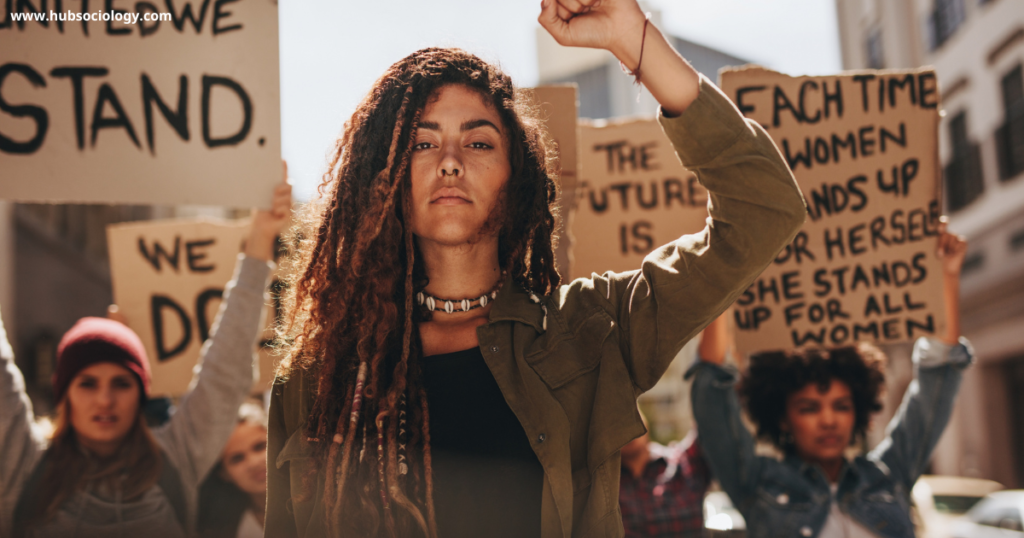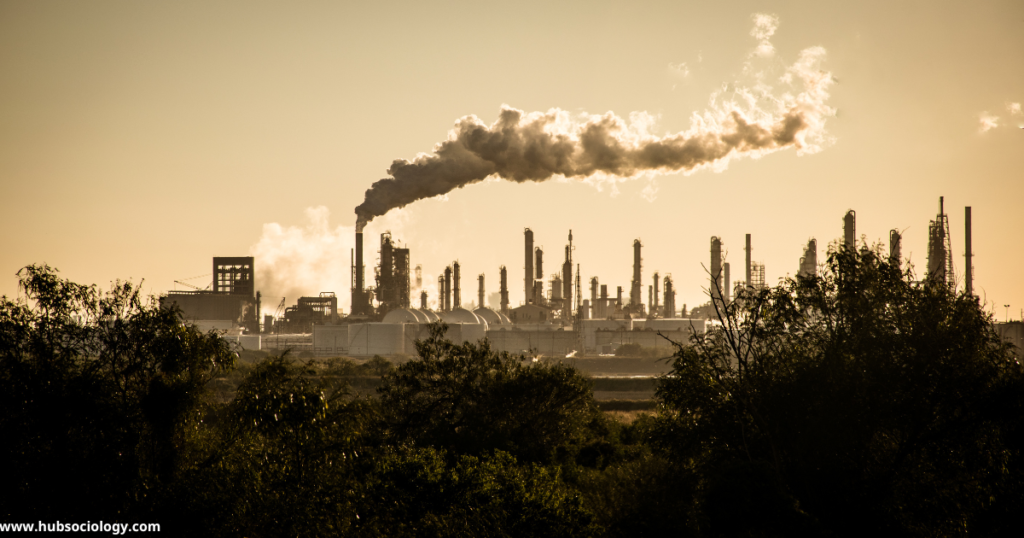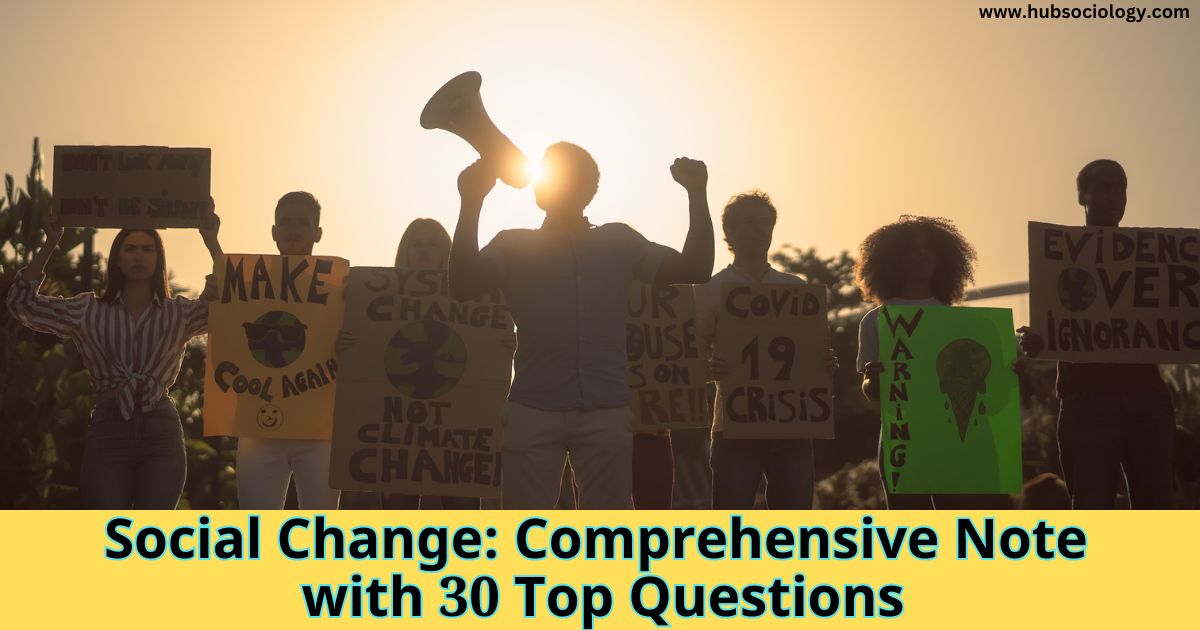
Social change is an inevitable and continuous process that influences human societies in multiple ways. Sociologists have long studied the transformation of social structures, cultural norms, values, and institutions over time. As societies evolve, they experience changes in economic systems, technological advancements, political landscapes, and social relationships. This article delves into the concept of social change, its causes, types, and perspectives, with insights from notable sociologists.
Definition of Social Change
Social change refers to significant alterations in social structures, behaviors, and cultural patterns over time. It encompasses modifications in institutions, roles, and norms that shape human interactions. According to sociologist Kingsley Davis, social change is “a process by which the social structure and culture of a society undergo modification.” Similarly, MacIver and Page define social change as “a process responsive to many types of changes in the physical and social environment, demographic composition, cultural innovation, and diffusion.”
Additionally, William F. Ogburn emphasized that social change is largely driven by technological advancements, which lead to cultural lag—where material culture evolves faster than non-material culture, causing temporary imbalances in society. August Comte, the father of sociology, viewed social change as a progression through three stages: theological, metaphysical, and scientific. This evolutionary perspective suggests that societies gradually advance through intellectual and institutional development.
Social change can be abrupt or gradual, planned or unplanned, and may be influenced by internal factors (such as social movements and innovation) or external factors (such as war and globalization). It affects various aspects of human life, including political systems, economic structures, and cultural values, ultimately shaping the evolution of societies over time.
Causes of Social Change

Social change results from various factors, including:
- Technological Innovations: The introduction of new technologies, such as the internet and artificial intelligence, has revolutionized communication, work, and daily life. Technological advancements not only improve efficiency but also create new social structures, such as digital communities and global networking, altering traditional human interactions.
- Economic Factors: Industrialization, globalization, and economic crises drive societal transformations. Economic progress leads to urbanization, changes in employment patterns, and shifts in wealth distribution, impacting both individual lives and institutional arrangements.
- Political Developments: Changes in governance, revolutions, and policies significantly impact social structures. Political ideologies, movements, and legal reforms shape societal values and influence the distribution of power among social groups.
- Cultural and Ideological Shifts: The evolution of values, beliefs, and ideologies influences societal behaviors and norms. Movements advocating human rights, gender equality, and environmental consciousness redefine moral and ethical standards across generations.
- Demographic Changes: Population growth, migration, and urbanization contribute to social change. An aging population, shifts in family structures, and cross-cultural interactions result in transformations in healthcare, education, and economic policies.
- Environmental Factors: Climate change and natural disasters necessitate adaptation in human societies. Environmental concerns drive legislative actions, technological solutions, and social activism, influencing global policies and local community behaviors.
- Scientific Discoveries: Breakthroughs in medical science, space exploration, and genetics shape social structures and human perspectives. Advancements in healthcare improve longevity and quality of life, while scientific progress redefines ethical debates on issues like cloning and artificial intelligence.
- War and Conflict: Military conflicts and social unrest alter political landscapes, economies, and population dynamics. Wars lead to displacement, social reconstruction, and international policy shifts, influencing long-term societal transformations.
- Media and Communication: The rise of mass media, social media, and digital platforms accelerates the spread of information, shaping public opinion and cultural norms. The accessibility of real-time news and global connectivity has fostered increased social awareness and activism.
Types of Social Change
Social change manifests in different forms, impacting societies in varied ways. It can be categorized into several types:
- Planned and Unplanned Change:
- Planned Change: Deliberate efforts by governments, organizations, or social movements to bring about transformation (e.g., policy reforms, economic planning, and social welfare programs).
- Unplanned Change: Sudden or unintended changes occurring due to unforeseen circumstances like natural disasters, pandemics, or economic crises.
- Evolutionary and Revolutionary Change:
- Evolutionary Change: A slow and gradual transformation that occurs over a long period, often in response to environmental adaptation, technological advancements, or cultural shifts.
- Revolutionary Change: A rapid and dramatic transformation that alters the fundamental structures of society, often associated with revolutions, political upheavals, or major technological breakthroughs.
- Structural and Functional Change:
- Structural Change: Alters the organization and framework of society, affecting institutions like family, education, and governance (e.g., feudalism transitioning into capitalism).
- Functional Change: Modifies how different social structures operate without necessarily changing their core structure (e.g., shifting gender roles within the workforce).
- Cyclical and Linear Change:
- Cyclical Change: Societies experience repeating patterns of rise and decline, as seen in the theories of sociologists like Pitirim Sorokin, who described the fluctuation between ideational and sensate cultures.
- Linear Change: Progress that follows a continuous forward trajectory, as suggested by modernization and development theories, where societies evolve from traditional to advanced stages.
- Progressive and Regressive Change:
- Progressive Change: Leads to improvements in societal conditions, such as advancements in human rights, technology, and social justice.
- Regressive Change: Results in setbacks or deterioration, such as authoritarian rule, economic depression, or cultural decline due to external or internal pressures.
- Diffusion and Acculturation:
- Diffusion: The spread of cultural elements, technologies, or social practices from one society to another (e.g., globalization of Western fashion and cuisine).
- Acculturation: The process where two or more cultures interact and adapt to each other, leading to cultural hybridization (e.g., the blending of traditional and modern lifestyles in urban societies).

Perspectives on Social Change
Different sociological theories explain the process of social change:
- Functionalist Perspective:
- Functionalists view social change as a natural progression towards stability and order. Talcott Parsons argued that societies move from simple to complex structures through differentiation and integration.
- Change is necessary for maintaining equilibrium in society.
- Conflict Perspective:
- Conflict theorists, such as Karl Marx, emphasized that social change is driven by class struggle and economic inequality.
- According to Marx, revolutions and conflicts between dominant and subordinate groups lead to social transformation.
- Evolutionary Perspective:
- Sociologists like Herbert Spencer compared social evolution to biological evolution, where societies progress from lower to higher forms.
- This perspective suggests that societies move towards increasing complexity and advancement.
- Cyclical Theory:
- Pitirim Sorokin proposed that social change follows cyclical patterns, where societies rise, decline, and then rise again.
- This theory implies that history tends to repeat itself through cycles of social transformation.
Impact of Social Change
Social change brings both positive and negative consequences, influencing societies in profound ways. It affects various aspects of human life, including economic systems, social interactions, and political structures.
- Positive Effects:
- Improved Living Standards: Technological advancements have led to better healthcare, transportation, and communication, enhancing overall quality of life.
- Social Equality and Human Rights: Progressive social movements have promoted greater gender equality, reduced discrimination, and improved legal protections for marginalized groups.
- Educational and Economic Growth: Access to education has expanded, leading to higher literacy rates and better employment opportunities, driving economic development.
- Democratic Advancements: Many societies have shifted towards democratic governance, ensuring political participation and representation for all citizens.
- Scientific and Technological Innovation: Scientific progress has led to breakthroughs in medicine, renewable energy, and sustainable development.
- Negative Effects:
- Disruptions in Traditional Social Structures: Rapid modernization often leads to the erosion of cultural traditions and family values.
- Increased Social Conflicts and Instability: Economic disparities, political struggles, and ideological differences can lead to protests, revolutions, and even wars.
- Environmental Degradation: Industrialization, urbanization, and deforestation contribute to pollution, climate change, and loss of biodiversity.
- Unemployment and Economic Disparities: Automation and globalization can lead to job losses and widen the gap between the rich and the poor.
- Mental Health Challenges: The fast pace of change and technological dependency can contribute to stress, anxiety, and social isolation.
Despite its challenges, social change remains a dynamic force that shapes societies, requiring careful management to maximize its benefits while minimizing its adverse effects.

Talcott Parsons’ Perspectives on Social Change
Talcott Parsons, a key figure in structural functionalism, provided a detailed analysis of social change through his theory of structural differentiation and social evolution. He argued that societies develop and evolve through increasing differentiation and integration of social institutions.
1. Structural Differentiation
Parsons proposed that as societies grow and become more complex, they undergo structural differentiation, where social institutions and roles become more specialized. For example:
- In simple societies, family structures encompass economic, educational, and religious functions.
- As societies evolve, distinct institutions (e.g., schools, banks, and religious organizations) take over these functions, leading to specialization and efficiency.
2. Pattern Maintenance and Equilibrium
Parsons believed that social systems strive for equilibrium, meaning that whenever a change occurs, society adapts to restore balance. This is achieved through:
- Socialization: Teaching individuals societal norms and values.
- Institutional Adaptation: Adjusting roles and structures to fit new conditions.
- Feedback Mechanisms: Encouraging stability while incorporating necessary change.
3. Evolutionary Universals
Parsons identified certain “evolutionary universals,” which he believed were essential features of advanced societies. These include:
- Bureaucratic Organization: Structured governance ensures efficiency.
- Democratic Participation: Greater inclusivity in decision-making.
- Market Economy: Economic specialization enhances productivity.
- Mass Education: A well-educated populace fosters innovation and social stability.
4. Social Change through Adaptive Upgrading
Parsons viewed social change as a process of adaptive upgrading, where:
- Societies shift from simple to complex structures.
- Institutions adjust to meet new challenges (e.g., traditional economies evolving into industrial economies).
- Societal values and norms evolve to support these changes.
5. Criticism of Parsons’ Perspective
While Parsons’ theory provides a structured approach to understanding social change, critics argue that:
- It overemphasizes stability and ignores conflict-driven changes (e.g., revolutions).
- It assumes all change leads to progress, neglecting negative consequences like inequality and environmental degradation.
- It lacks emphasis on agency and power struggles within societies.
Karl Marx’s Perspectives on Social Change
Karl Marx, a founding figure of conflict theory, presented a revolutionary perspective on social change, emphasizing economic structures and class struggles as primary drivers of societal transformation.
1. Historical Materialism
Marx introduced historical materialism, arguing that economic conditions shape social structures and human history. He identified the modes of production (e.g., feudalism, capitalism) as fundamental elements that determine societal organization and development.
2. Class Struggle as a Catalyst for Change
Marx viewed history as a continuous conflict between opposing social classes:
- In feudalism, lords exploited peasants.
- In capitalism, the bourgeoisie (owners of production) exploit the proletariat (working class).
- This class struggle leads to tensions, which eventually result in revolutions and systemic change.
3. Dialectical Materialism
Marx adopted dialectical materialism, inspired by Hegelian philosophy. He proposed that social change occurs through the thesis-antithesis-synthesis model:
- Thesis: The existing social order (e.g., capitalism).
- Antithesis: The contradictions and conflicts within that system (e.g., worker exploitation, inequality).
- Synthesis: The emergence of a new order (e.g., socialism and eventually communism).
4. Alienation and Its Role in Social Change
Marx argued that capitalism alienates workers in four ways:
- Alienation from the product of labor: Workers do not own what they produce.
- Alienation from the labor process: Work becomes monotonous and unfulfilling.
- Alienation from fellow workers: Capitalism fosters competition rather than cooperation.
- Alienation from human potential: Workers are reduced to mere instruments of production rather than creative beings.
This alienation, according to Marx, creates dissatisfaction among the proletariat, leading to revolutionary movements.
5. Revolution as the Means of Change
Marx believed that social change is driven by revolution, rather than gradual evolution. He predicted that capitalism would collapse due to its inherent contradictions, leading to the establishment of a socialist society. The proletariat would overthrow the bourgeoisie and establish a classless, stateless society based on collective ownership of the means of production.
6. Criticism of Marx’s Perspective
Although Marx’s theory profoundly influenced sociology and political thought, critics argue that:
- His predictions of capitalist collapse and global revolution have not materialized.
- He underestimated the adaptability of capitalism, which has incorporated reforms such as labor rights and welfare policies.
- His focus on economic determinism overlooks other social factors like culture, ideology, and technological advancements.
Max Weber’s Perspectives on Social Change
Max Weber, a key figure in sociology, provided a distinctive perspective on social change, focusing on ideas, beliefs, and individual actions rather than solely economic factors. His approach, known as interpretive sociology, emphasizes the role of human agency in shaping historical transformations.
1. The Role of Ideas in Social Change
Weber argued that ideas and values play a crucial role in driving social change. Unlike Karl Marx, who emphasized economic determinism, Weber believed that cultural and religious beliefs could shape economic and social structures.
2. The Protestant Ethic and the Spirit of Capitalism
One of Weber’s most influential works, The Protestant Ethic and the Spirit of Capitalism, explores how religious beliefs contributed to economic change. He argued that:
- Protestant values, particularly Calvinism, encouraged hard work, discipline, and frugality.
- The emphasis on worldly success as a sign of divine favor led to the development of capitalist economies.
- This shift in work ethic played a vital role in the rise of industrial capitalism in Western societies.
3. Rationalization and Bureaucracy
Weber introduced the concept of rationalization, which refers to the increasing dominance of reason, efficiency, and calculated decision-making in modern society. He identified several key aspects:
- Traditional societies were guided by customs and religious beliefs, while modern societies relied on rational thought and scientific approaches.
- The rise of bureaucracy, characterized by structured hierarchies, standardized procedures, and impersonal relationships, facilitated efficiency but also led to dehumanization.
- Rationalization affected various institutions, including law, politics, and education, transforming how societies function.
4. Types of Authority and Social Change
Weber classified authority into three types, each influencing social change differently:
- Traditional Authority: Based on customs and inherited power (e.g., monarchy, tribal leadership).
- Charismatic Authority: Rooted in the extraordinary personal qualities of a leader (e.g., religious prophets, revolutionaries).
- Legal-Rational Authority: Founded on laws, rules, and formal institutions (e.g., modern democracies, corporate structures).
Weber argued that societies transition from traditional to legal-rational authority, leading to bureaucratic and institutional development.
5. The Disenchantment of the World
Weber warned about the disenchantment of the world, a consequence of increasing rationalization. He suggested that:
- Scientific reasoning and bureaucratic efficiency diminish spiritual and moral values.
- Individuals become trapped in an “iron cage” of rationality, where creativity and humanistic values are overshadowed by rigid systems.
- While rationalization brings progress, it also leads to alienation and loss of individual freedom.
6. Criticism of Weber’s Perspective
Although Weber’s analysis of social change remains highly influential, critics argue that:
- His emphasis on ideas overlooks the material and structural forces that shape society.
- He underestimated the resilience of traditional values in modern societies.
- His views on bureaucracy have been challenged, as modern organizations strive for more flexibility and adaptability.
Topic Related Questions
5 Marks Questions
- Define social change and provide an example.
- What are the main causes of social change according to sociologists?
- Explain the difference between evolutionary and revolutionary change.
- How does technological innovation contribute to social change?
- What is the functionalist perspective on social change?
- Describe the conflict perspective on social change as proposed by Karl Marx.
- What is the cyclical theory of social change?
- How does demographic change influence social structures?
- What are the positive effects of social change on society?
- Explain the concept of structural differentiation in Talcott Parsons’ theory.
10 Marks Questions
- Discuss the various types of social change with examples.
- Analyze the impact of economic factors on social change.
- Compare and contrast the functionalist and conflict perspectives on social change.
- Explain Talcott Parsons’ theory of structural differentiation and its relevance to social change.
- Discuss the role of cultural and ideological shifts in driving social change.
- How does Max Weber’s concept of rationalization explain social change in modern societies?
- Evaluate the positive and negative effects of social change on human societies.
- Explain Karl Marx’s theory of historical materialism and its implications for social change.
- Discuss the role of environmental factors in necessitating social change.
- How does Max Weber’s classification of authority types influence social change?
15 Marks Questions
- Critically analyze Talcott Parsons’ perspective on social change, including his theory of structural differentiation and pattern maintenance.
- Discuss Karl Marx’s theory of class struggle and its role in driving social change. How relevant is this theory in today’s context?
- Evaluate Max Weber’s contribution to the understanding of social change, focusing on his concepts of rationalization, bureaucracy, and the disenchantment of the world.
- Compare and contrast the perspectives of Talcott Parsons, Karl Marx, and Max Weber on social change.
- Discuss the impact of technological advancements on social change, considering both positive and negative consequences.
- Analyze the role of political developments in shaping social change, with reference to historical and contemporary examples.
- Critically examine the cyclical theory of social change proposed by Pitirim Sorokin. Do you agree with the notion that history repeats itself?
- Discuss the role of demographic changes, such as migration and urbanization, in driving social change. Provide examples to support your answer.
- Evaluate the impact of social change on traditional social structures and cultural norms. How do societies adapt to these changes?
- Discuss the concept of evolutionary universals as proposed by Talcott Parsons. How do these universals contribute to the development of advanced societies?

12 thoughts on “Social Change: Comprehensive Note with 30 Top Questions”